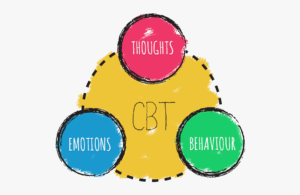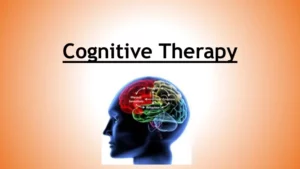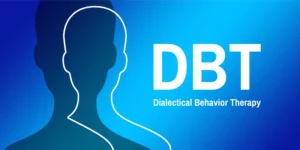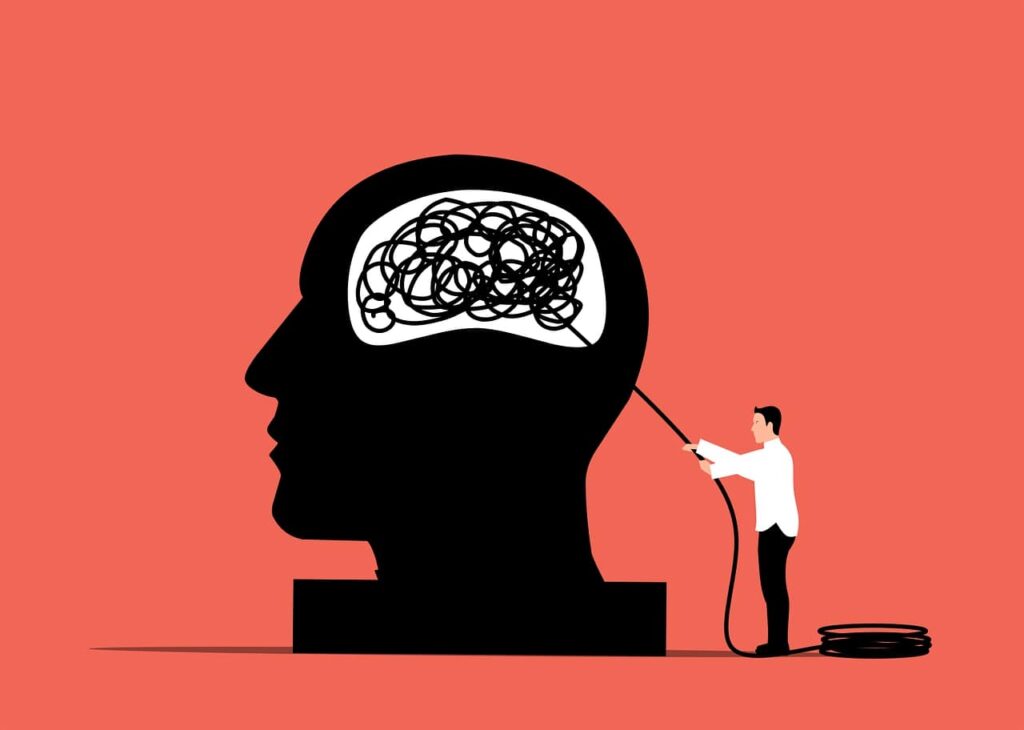Cognitive-behavioral therapy, or CBT, is a type of psychotherapy that has been shown to be effective in treating a wide range of mental health issues. There are many different types of CBT, and each one can be tailored to fit the individual’s needs. In this blog post, we will discuss 14 types of CBT that can help you address your mental health issues!
Contents
- 1 Defining CBT
- 2 Types of CBT
- 2.1 Cognitive therapy
- 2.2 Behavioral therapy
- 2.3 Dialectical behavior therapy (DBT)
- 2.4 Exposure therapy
- 2.5 Acceptance and commitment therapy (ACT)
- 2.6 Stress management therapy
- 2.7 Mindfulness-based cognitive therapy (MBCT)
- 2.8 Interpersonal therapy (IPT)
- 2.9 Problem-solving therapy
- 2.10 Cognitive processing therapy (CPT)
- 2.11 Functional Analytic Psychotherapy (FAP)
- 2.12 Behavioral activation (BA)
- 2.13 Compassion-Informed Psychotherapy
- 2.14 Multimodal therapy
- 3 Choosing The Right Type Of Treatment For You
- 4 Conclusion
Defining CBT

CBT, a popular abbreviation for “Cognitive Behavioral Therapy,” is a type of evidence-based psychotherapy that has been shown to be effective in treating a wide range of mental health issues. It focuses on helping people change their thoughts and behaviors in order to improve their mood and overall functioning.
CBT has gained popularity in recent years due to its effectiveness in treating a wide range of mental health issues. In fact, CBT is one of the most widely studied and evidence-based psychotherapies available today.
It can cater to the treatment for a variety of mental disorders such as:
- Anxiety disorders
- Depressive disorders
- Eating disorders
- Obsessive-compulsive disorder (OCD)
- Post-traumatic stress disorder (PTSD)
- Personality disorders
CBT can also be used to help people with other issues such as:
- Anger management
- Chronic pain
- Insomnia
- Substance abuse and addiction
While there are many different types of CBT, all approaches share certain common features. CBT is usually short-term, lasting for 12-20 weeks. It is typically conducted in weekly 50-60 minute sessions, although some approaches may involve more frequent sessions. CBT is a collaborative treatment, which means that the therapist and client work together to identify and change thoughts and behaviors.
CBT is usually considered to be an “active” treatment, which means that clients are actively involved in their own treatment. This often includes homework assignments, such as keeping a thought journal or practicing new skills outside of session.
Types of CBT
Now that we have a general understanding of what CBT is, let’s discuss the different types of CBT that are available. While all types of CBT share certain common features, each approach has its own unique focus and techniques.
Cognitive therapy

Cognitive therapy is a type of CBT that focuses on helping people identify and change their negative thinking patterns. If you tend to have a lot of negative thoughts, cognitive therapy can help you learn how to recognize and reframe these thoughts in a more positive light.
It works by helping you to identify your negative thought patterns, and then teaching you how to replace these thoughts with more positive ones. For example, if you tend to have negative thoughts about yourself, cognitive therapy can help you learn to think more positively about yourself.
Cognitive therapy has been shown to be effective in treating depression, anxiety, eating disorders, and substance abuse. In addition to disorders, this therapy can also be used to help people who are struggling with low self-esteem or negative thinking.
Behavioral therapy
Behavioral therapy is a type of CBT that focuses on helping people change their behaviors. If you have a behavior that is causing you problems, such as binge eating or nail-biting, behavioral therapy can help you learn how to change this behavior.
It works by helping you to identify the triggers for your problematic behavior and then teaching you new coping skills to deal with these triggers. It involves the use of positive reinforcement to help you learn new, healthier behaviors.
For example, if you are trying to quit smoking, your therapist may give you a rewards system, such as giving you a sticker for every day that you do not smoke. It can also mean learning how to cope with triggers in a healthy way, such as going for a walk instead of smoking when you are feeling stressed.
Behavioral therapy has been shown to be effective in treating anxiety, depression, eating disorders, and substance abuse.
Dialectical behavior therapy (DBT)

DBT is a type of CBT that focuses on helping people manage their emotions. If you have difficulty dealing with your emotions, DBT can help you learn how to cope with them in a healthy way.
It works by teaching you skills such as mindfulness, emotional regulation, interpersonal effectiveness, and distress tolerance. These skills can help you to better deal with difficult emotions, and ultimately improve your mood and overall functioning.
This approach to therapy consists of various stages of treatment. The first stage focuses on helping you to stabilize your emotions, while the second stage focuses on teaching you how to manage your emotions in a more healthy way.
DBT has been shown to be effective in treating a wide range of mental health issues, including borderline personality disorder anxiety, depression, eating disorders, and substance abuse.
Exposure therapy
Exposure therapy is a type of CBT that focuses on helping people confront their fears. If you have a fear or phobia that is causing you distress, exposure therapy can help you learn how to face your fear and ultimately overcome it.
It works by gradually exposing you to the thing that you are afraid of, in a safe and controlled setting. This can help you to desensitize yourself to your fear, and eventually overcome it.
For example, if you have a fear of flying, exposure therapy may involve gradually exposing you to airplane travel, starting with small steps such as watching videos about flying, and eventually working up to taking a flight.
Exposure therapy has been shown to be effective in treating anxiety disorders, such as phobias, OCD, and PTSD.
Acceptance and commitment therapy (ACT)
ACT is a type of CBT that focuses on helping people accept their thoughts and feelings. If you have difficulty accepting your thoughts and feelings, ACT can help you learn how to do so in a healthy way.
It works by teaching you skills such as mindfulness and acceptance. These skills can help you to better deal with your thoughts and feelings, and ultimately improve your mood and overall functioning.
ACT has been shown to have multiple benefits, including reducing stress, improving mood, and increasing life satisfaction. In addition, it also has been shown to be effective in treating anxiety, depression, and chronic pain.
Stress management therapy
Stress management therapy is a type of CBT that focuses on helping people manage their stress. If you have a lot of stress in your life, stress management therapy can help you learn how to cope with it in a healthy way.
It works by teaching you skills such as relaxation techniques, time management, and assertiveness. These skills can help you to better deal with stress, and ultimately improve your mood and overall functioning. It equips the client with the tools needed to manage stress effectively.
Stress management therapy has been shown to be effective in treating anxiety, depression, and substance abuse.
Mindfulness-based cognitive therapy (MBCT)

MBCT is a type of CBT that focuses on helping people become more mindful. If you have difficulty paying attention to your thoughts and feelings, MBCT can help you learn how to do so in a more deliberate way.
It works by teaching you skills such as mindfulness and cognitive restructuring. These skills can help you to better deal with your thoughts and feelings, and ultimately improve your mood and overall functioning. This approach also emphasizes the importance of regular practice, such as meditation, in order to maintain these gains.
MBCT has been shown to be effective in treating anxiety, depression, and substance abuse. In addition, it also helps with chronic pain, fatigue, and sleep problems.
Interpersonal therapy (IPT)
Interpersonal therapy is a type of CBT that focuses on helping people improve their relationships with others. If you have trouble communicating with others or tend to avoid social situations, interpersonal therapy can help you learn how to better communicate your needs and wants.
This approach works by helping you to identify the areas in your life where you need to improve your communication skills. It then teaches you how to express yourself more effectively and how to build healthier relationships with others. It also builds on your existing social support network.
IPT has been shown to be effective in treating anxiety, depression, and eating disorders. It can also aid with weight loss as well as helping people to quit smoking.
Problem-solving therapy
Problem-solving therapy is a type of CBT that focuses on helping people solve problems in their lives. If you have trouble solving problems, problem-solving therapy can help you learn how to do so in a more effective way.
It works by teaching you skills such as brainstorming, decision-making, and goal-setting. These skills can help you to better deal with the problems in your life, and ultimately improve your mood and overall functioning.
This approach is best suited for people who are dealing with specific problems in their lives, such as job loss, relationship difficulties, or chronic illness. It can also aid certain mental disorders such as depression and anxiety.
Cognitive processing therapy (CPT)
CPT is a type of CBT that focuses on helping people process their thoughts and feelings. If you have difficulty understanding or dealing with your thoughts and feelings, CPT can help you learn how to do so in a healthy way.
It works by teaching you skills such as cognitive restructuring and emotional processing. These skills can help you to better deal with your thoughts and feelings, and ultimately improve your mood and overall functioning.
For example, if you’re having trouble dealing with a traumatic event, CPT can help you to process the event in a healthy way. It can also help you to understand and manage your thoughts and feelings about the event.
CPT has been shown to be effective in treating anxiety, depression, PTSD, and other mental health disorders.
Functional Analytic Psychotherapy (FAP)
FAP is a type of CBT that focuses on helping people improve their relationships with others. If you have trouble communicating with others or tend to avoid social situations, FAP can help you learn how to better communicate your needs and wants.
It works by teaching you skills such as mindfulness, emotional regulation, and interpersonal effectiveness. These skills can help you to better deal with the problems in your life, and ultimately improve your mood and overall functioning.
This approach is most commonly used to treat anxiety, depression, and substance abuse. It also helps in treating eating disorders and post-traumatic stress disorder (PTSD).
Behavioral activation (BA)

BA is a type of CBT that focuses on helping people increase their level of activity. If you have trouble getting motivated to do things, BA can help you learn how to do so in a more effective way.
It works by teaching you skills such as goal-setting, task analysis, and activity-scheduling. These skills can help you to better deal with the problems in your life, and ultimately improve your mood and overall functioning.
For example, if you’re feeling depressed, BA can help you to set goals and schedule activities that will increase your level of activity and make you feel better.
Compassion-Informed Psychotherapy
Compassion-Informed Psychotherapy is a type of CBT that focuses on helping people develop compassion for themselves and others. If you have trouble being compassionate, this therapy can help you learn how to do so in a more deliberate way.
It works by teaching you skills such as mindfulness, self-compassion, and empathy. These skills can help you to better deal with your thoughts and feelings. Ultimately, they help to improve your mood and overall functioning.
This approach to therapy is most suitable for people who are struggling with mild to moderate depression or anxiety.
Multimodal therapy
Multimodal therapy is a type of CBT that uses multiple modalities to treat mental health issues. If you have trouble with one particular aspect of CBT, multimodal therapy can help you learn how to better deal with it.
It works on addressing seven very distinct yet different modalities: biological, psychological, social, spiritual, environmental, cultural, and political. By addressing all of these areas, multimodal therapy can help you to better deal with your mental health issues and improve your overall functioning.
For example, if you have trouble with anxiety, multimodal therapy can help you by addressing the biological, psychological, and social aspects of your anxiety. This can help you to better understand and manage your anxiety in a more holistic way.
These are a few of the most common types of CBT. It is a very effective treatment for mental health disorders, and it can help you to improve your mood and overall functioning. If you’re struggling with mental health issues, talk to your therapist about which type of CBT may be right for you.
Choosing The Right Type Of Treatment For You

Now that we are aware of the various kinds of approaches to CBT, it is important to be able to discern which one might work better for you and your needs. CBT can be an effective treatment for many mental disorders. But not all CBTs are alike. Different therapists use different methods.
The decision for choosing the right kind of approach for yourself will depend upon a number of factors such as:
- The severity of your symptoms
- Your personal preferences
- Your cultural background
- The availability of resources
Making the decision to get help for your mental health is a big step. But it’s only the first step. Once you’ve made the decision to seek help, you need to find the right therapist and treatment approach for you. This can be a daunting task, but it’s important to remember that you have options. If one approach doesn’t work for you, there are others that may.
Conclusion
In conclusion, CBT is a very effective treatment for mental health disorders. It can help you to improve your mood and overall functioning. If you’re struggling with mental health issues, talk to your therapist about which type of CBT may be right for you. With the right treatment, you can start on the path to recovery.
CBT can be a great way to get help for mental disorders. If you are looking for a place to begin with your mental health treatment journey, consider availing Mantra Care’s services. We have a team of highly professional mental health experts providing the best quality mental health treatment. Our therapy sessions are open to people from all across the globe at affordable rates with maximum privacy and effectiveness. Contact us today to book a session or download our free Android or iOS app for more information!


